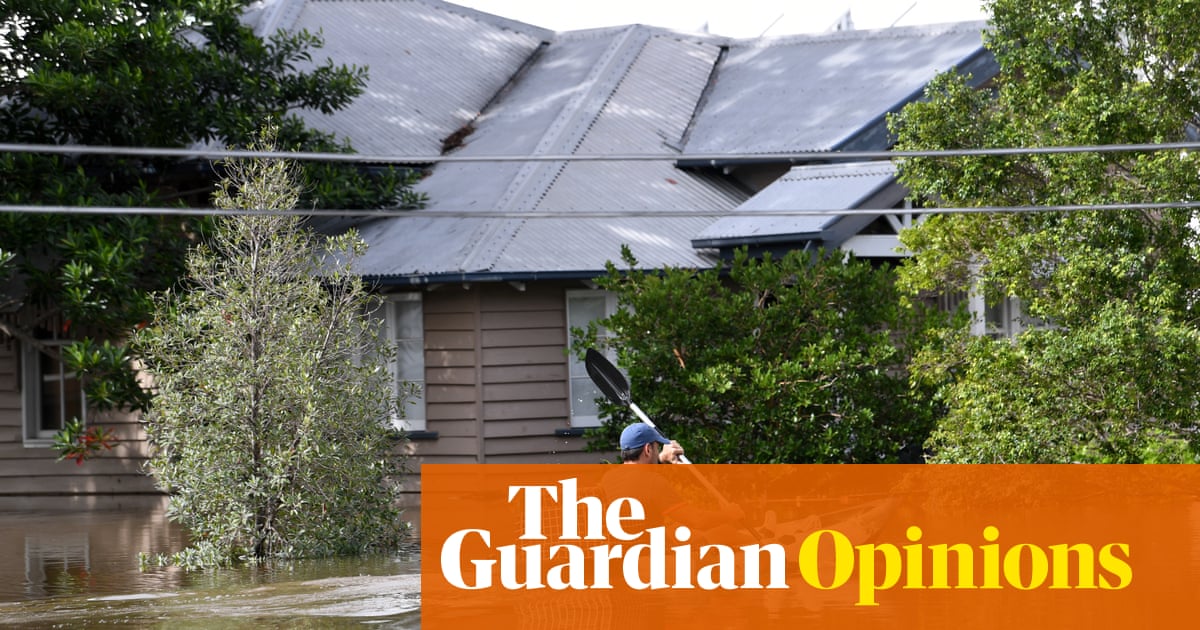Do you find climate breakdown funny? Do you think it’s a laughing matter that we are on track to bequeath to our children and their children a planet changed for the worse beyond all recognition? I don’t – and I’m sure the presenters of Radio 4’s Today programme don’t either. But I couldn’t help feeling we were having a bit of a Don’t Look Up moment yesterday, hearing them brush off predictions by top climate scientists that our world will end up at least 2.5C hotter as depressing and “gloomy”. This is not to say that laughter and grim news shouldn’t or can’t go together. I work with comedians to help get the climate crisis message across, but we use humour to aid understanding and to help cope, not to denigrate and mock.
The truth is that most people, including many professional journalists, and most politicians, don’t really “get” climate breakdown. Partly this reflects a heads-in-the-sand attitude, but mainly it flags a poor understanding of just how bad things are set to get.
Let’s talk that future through. In interviews with some of the world’s most renowned scientists in the Guardian this week, about 80% said they expected the global average temperature to climb this century to at least 2.5C above pre-industrial times. Many envisaged a “semi-dystopian” future in which blistering temperatures and ever more extreme weather drives famine, war and migration on a biblical scale.
A number of studies point to serious climate-driven economic knock-backs in the decades ahead, and one analysis predicts societal collapse as soon as 2040 if current trends continue. But for everyone to understand the dire straits we are in, climate scientists have a duty to make their fears known in public, not just in surveys or behind closed doors; not to give everyone the screaming abdabs, but to present an accurate picture of the grim future we face and to maximise awareness and understanding. No one wants to leave people frozen with fear, like rabbits caught in headlights. But to drive the widespread action needed to tackle the climate emergency, everyone needs to understand the depths of our predicament, and the reality of the colossal challenges we will face in the decades ahead.
There are other potential reasons for our collective denial over climate breakdown, and journalists are not the only ones guilty of it. A few years back, I wrote an open letter to the climate science community, urging everyone to shout from the rooftops what they whispered in private. At the time, too many scientists working in the field were keeping their heads down, perhaps understandably concerned that kicking up a fuss would risk them being shot at by their peers, losing prestige, seeing funding squeezed and opportunities for advancement closed. The lack of engagement was often excused by a belief that it was the job of scientists to faithfully record the facts, and not to get involved in politics or with the public.
Happily, there has been a sea change in recent years, thanks in part to the formation of high-profile groups such as Scientist Rebellion, so that now many scientists join protests, even getting arrested. Research in the journal Nature revealed 90% of climate scientists in 2021 said they had been involved in some form of public engagement. But climate scientists as a tribe – and I include myself here – still aren’t making enough noise or causing enough kerfuffle.
We need to be seen to walk the walk on the climate, too. Individual actions can only go so far, but they can play a part in bringing down emissions, and we should be leading by example. As scientists, we can do better on the daily things, like thinking twice when next invited to give a speech on the other side of the planet, or deciding not to choose the nice juicy steak at the free buffet. Above all, we must engage whenever possible and tell the truth. Those of you still minded to keep your heads below the parapet, think again. The time to worry about what your colleagues might think of you has long gone. Academic advancement won’t alter the fate of your children and grandchildren one little bit. And as for any concerns you might still have about a squeeze on funding, remember: there are no grant-awarding boards on a dead planet.







